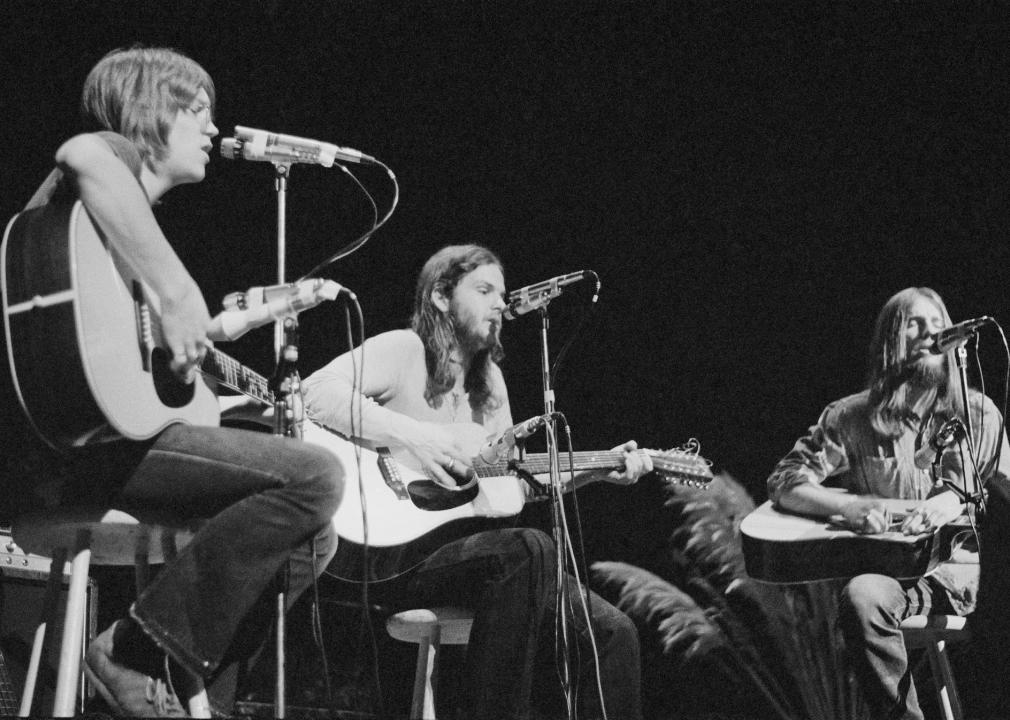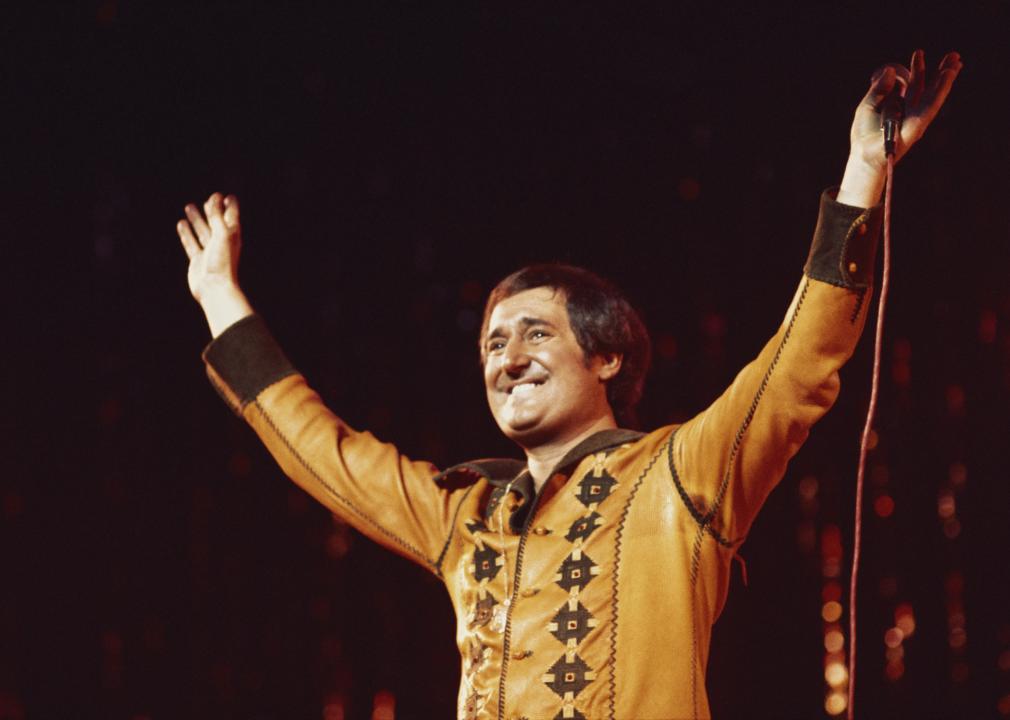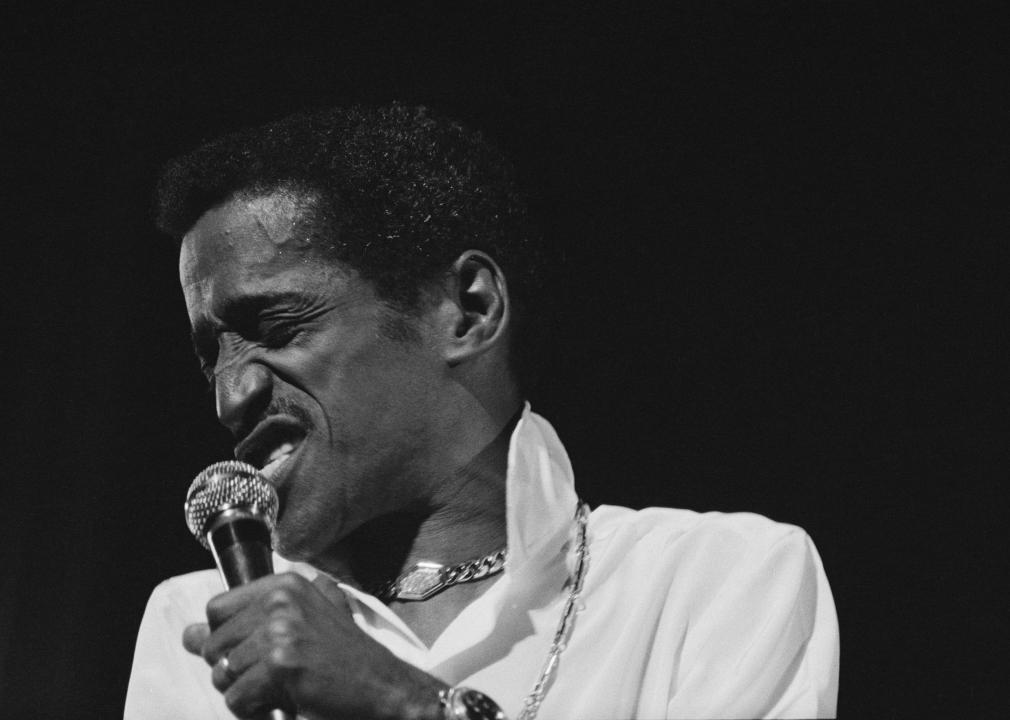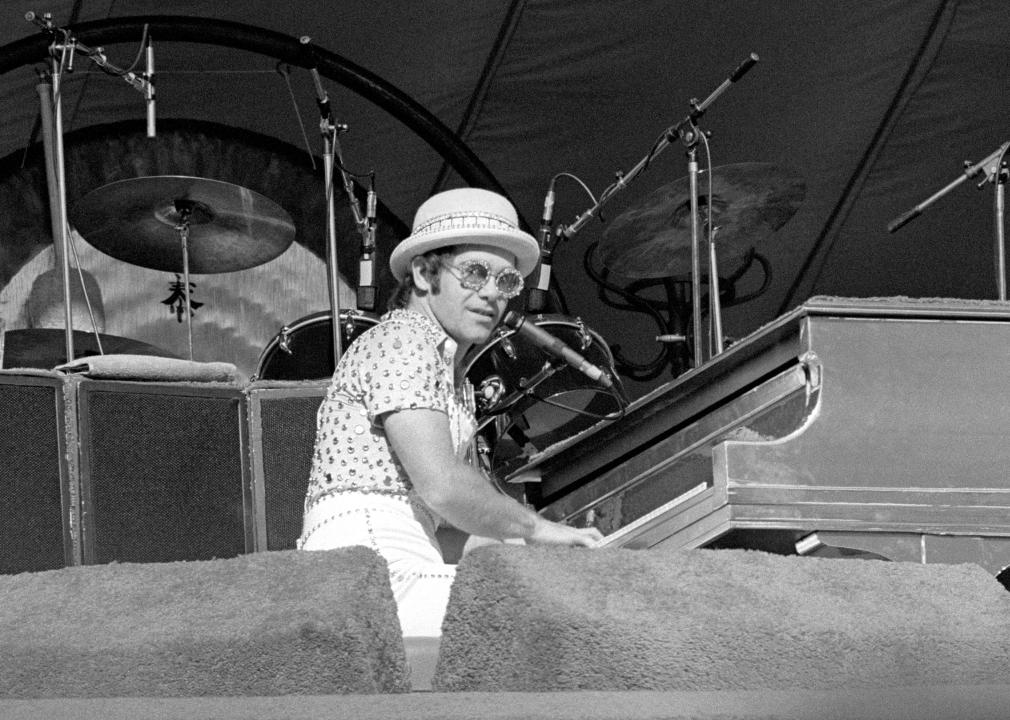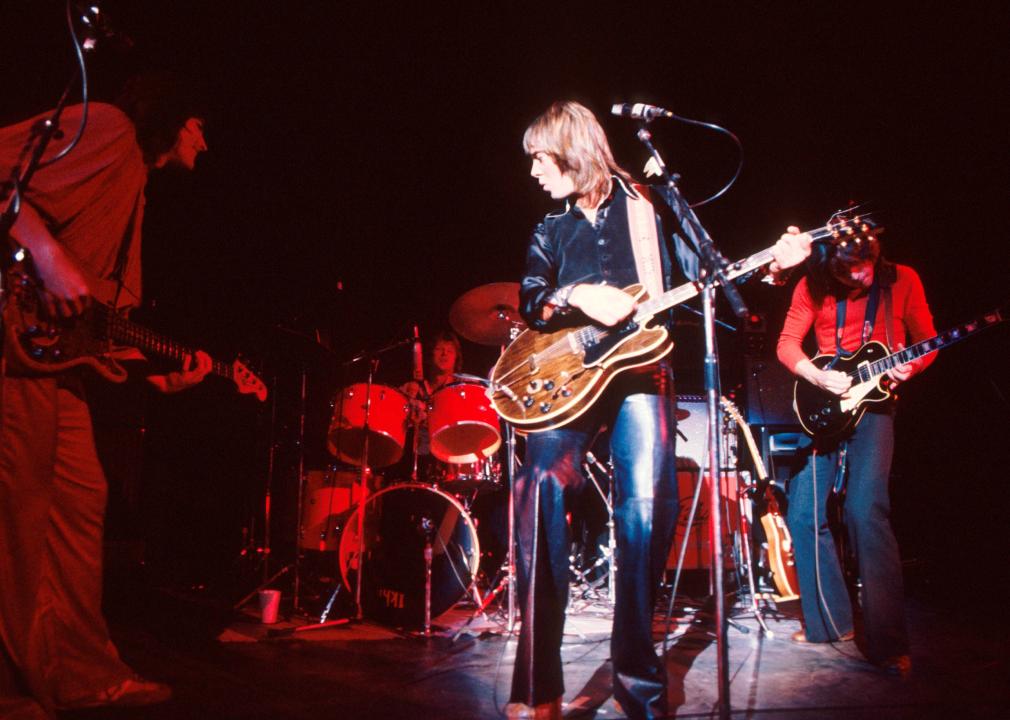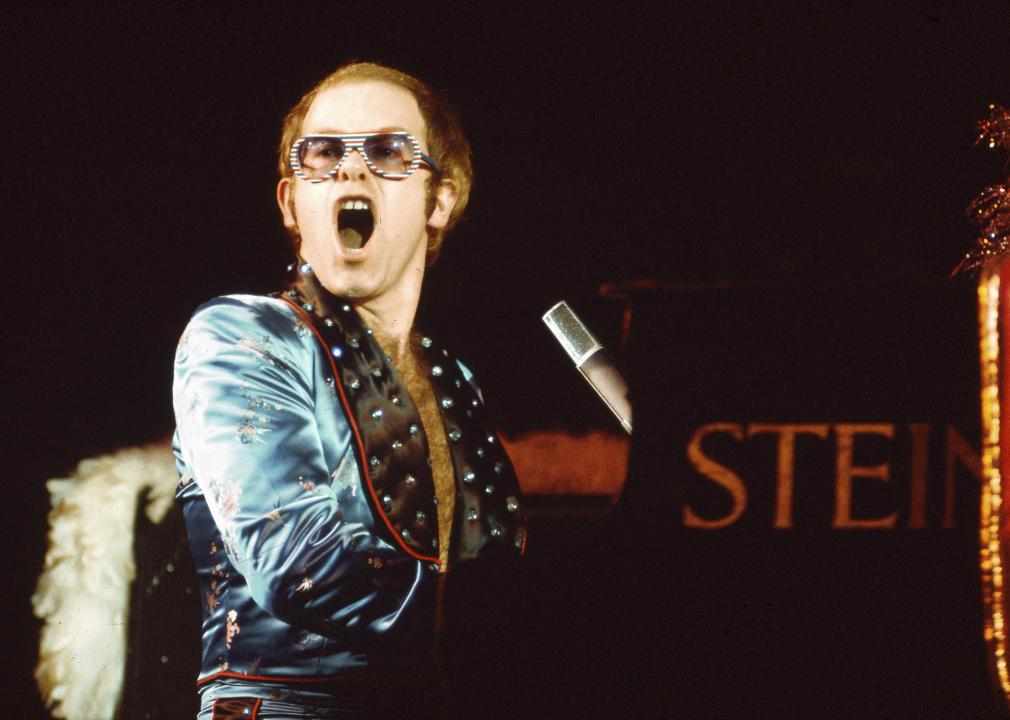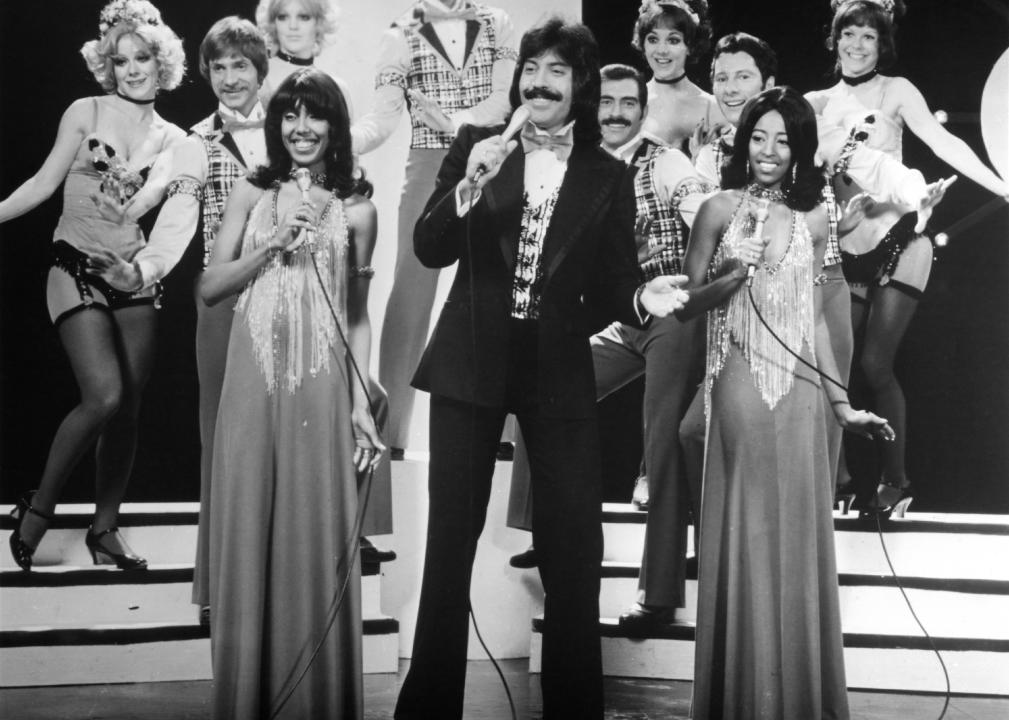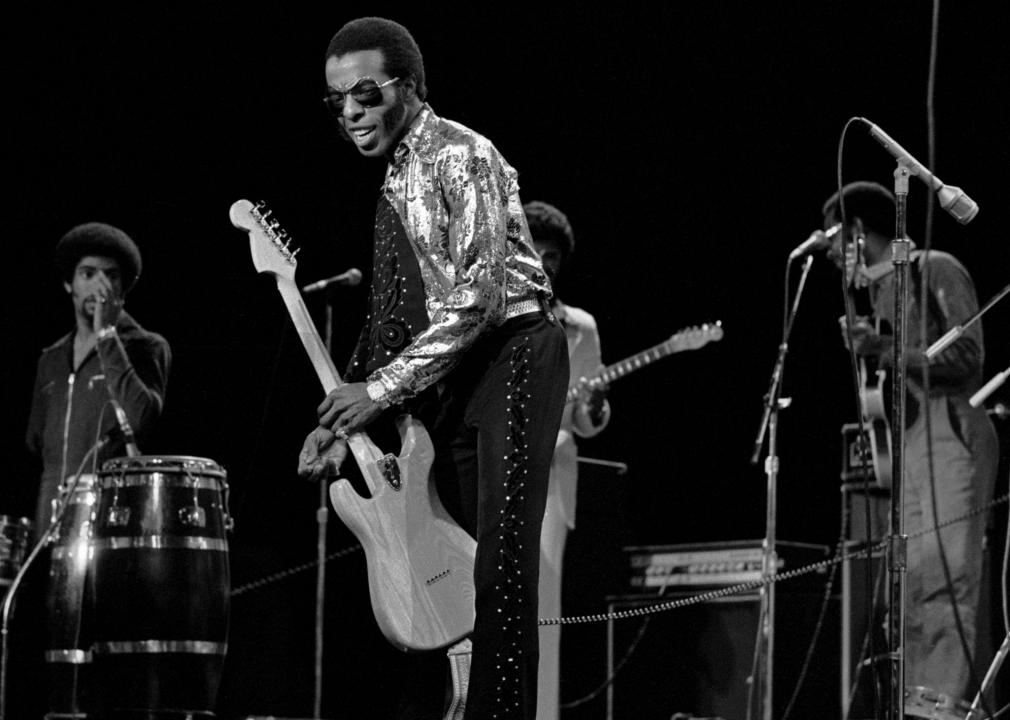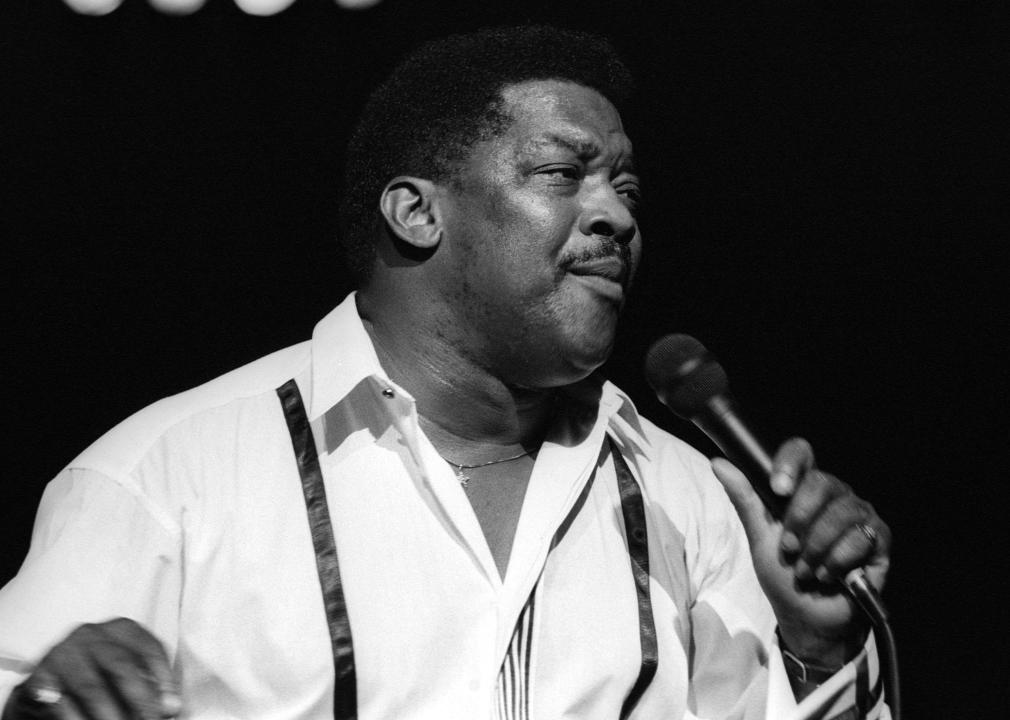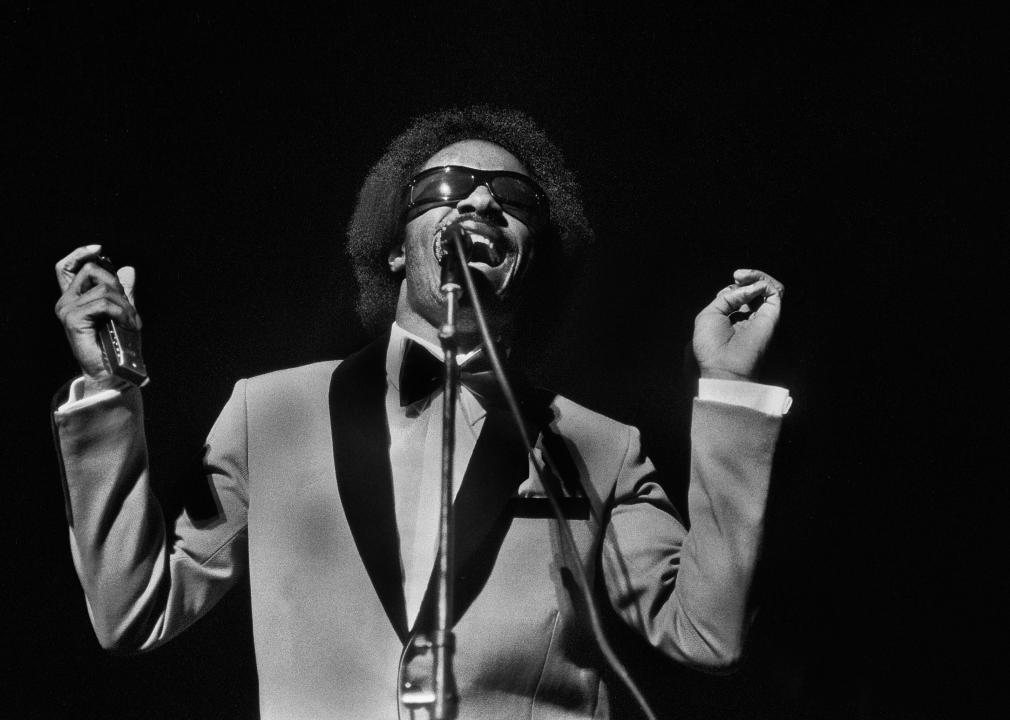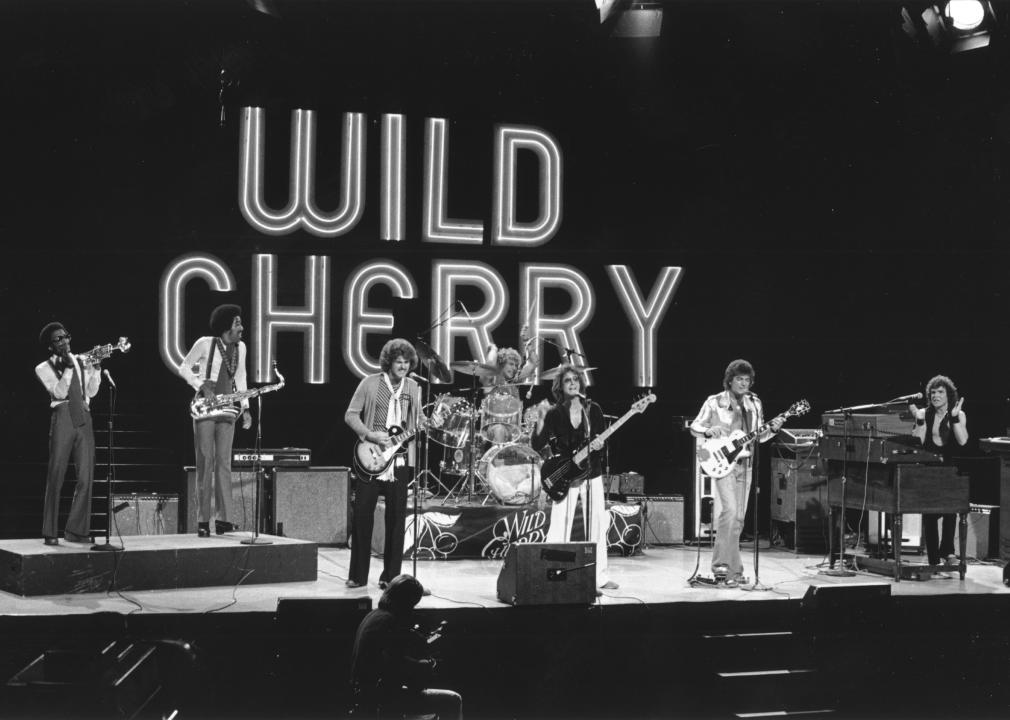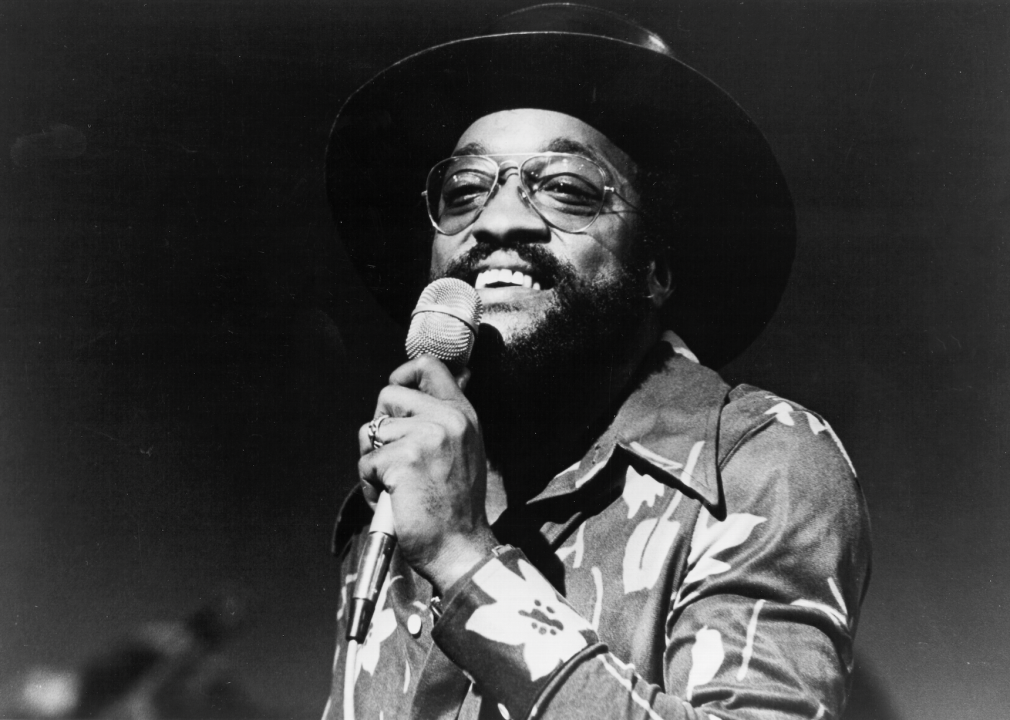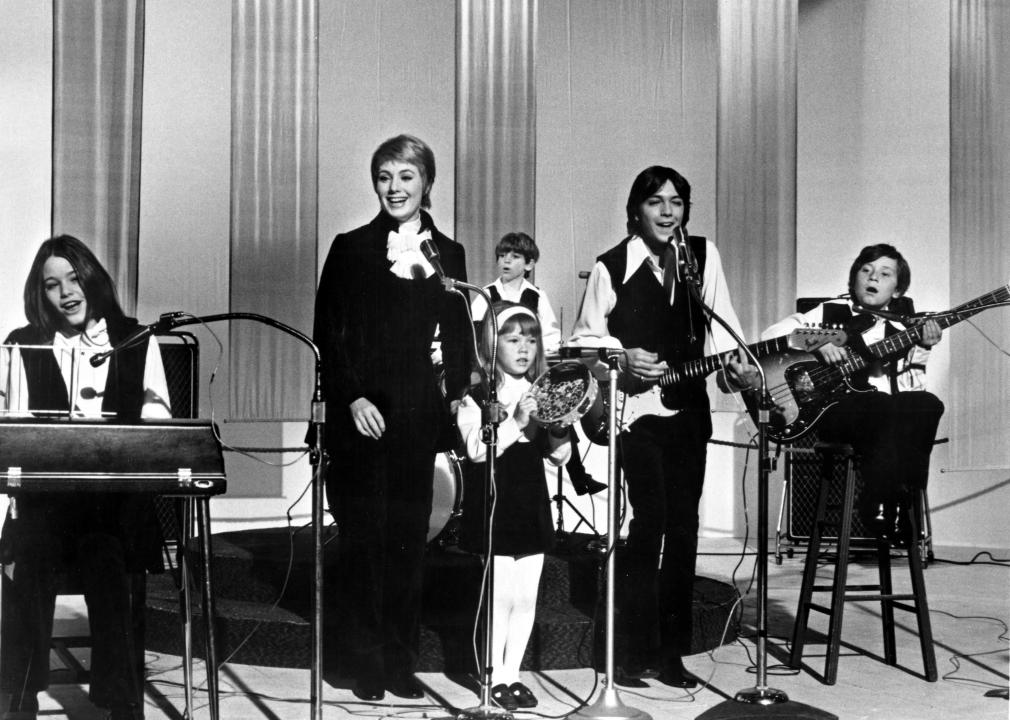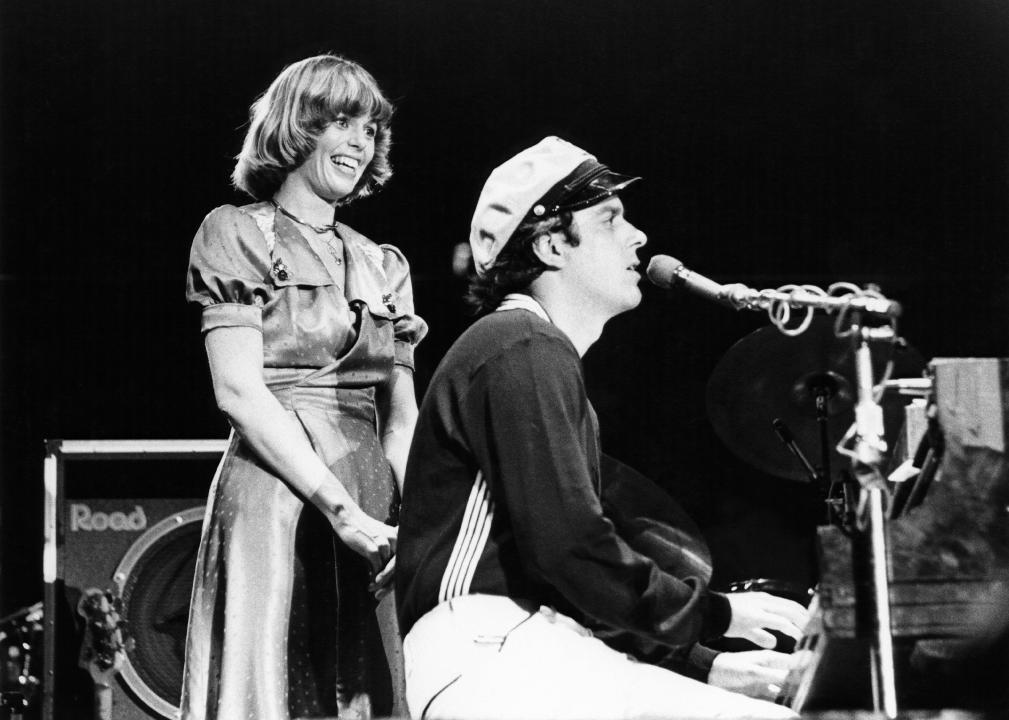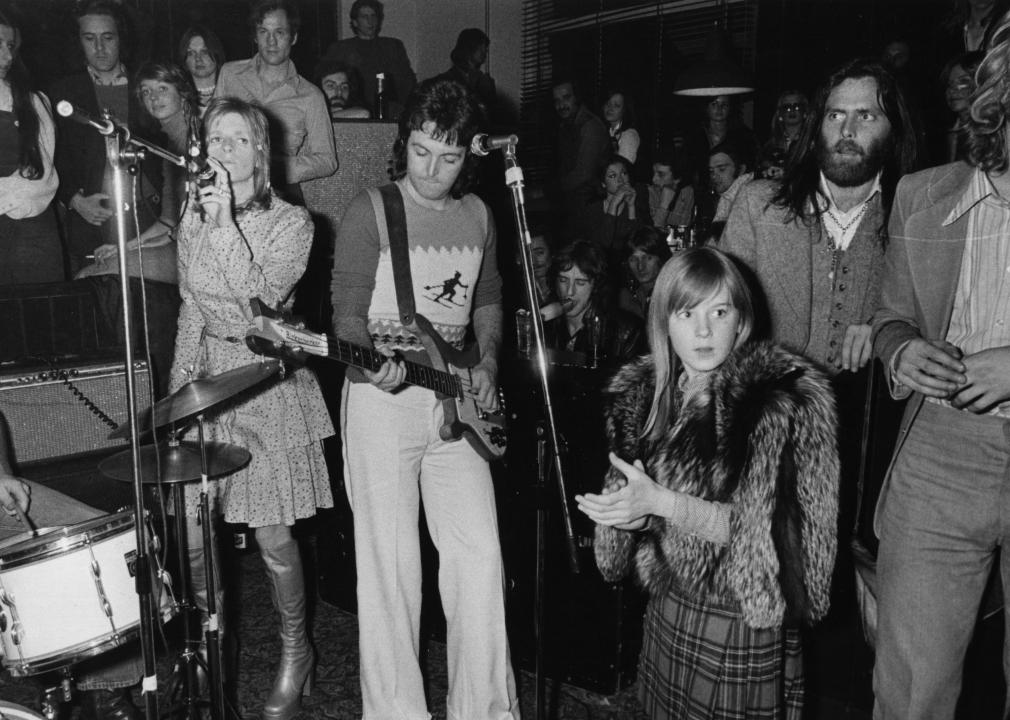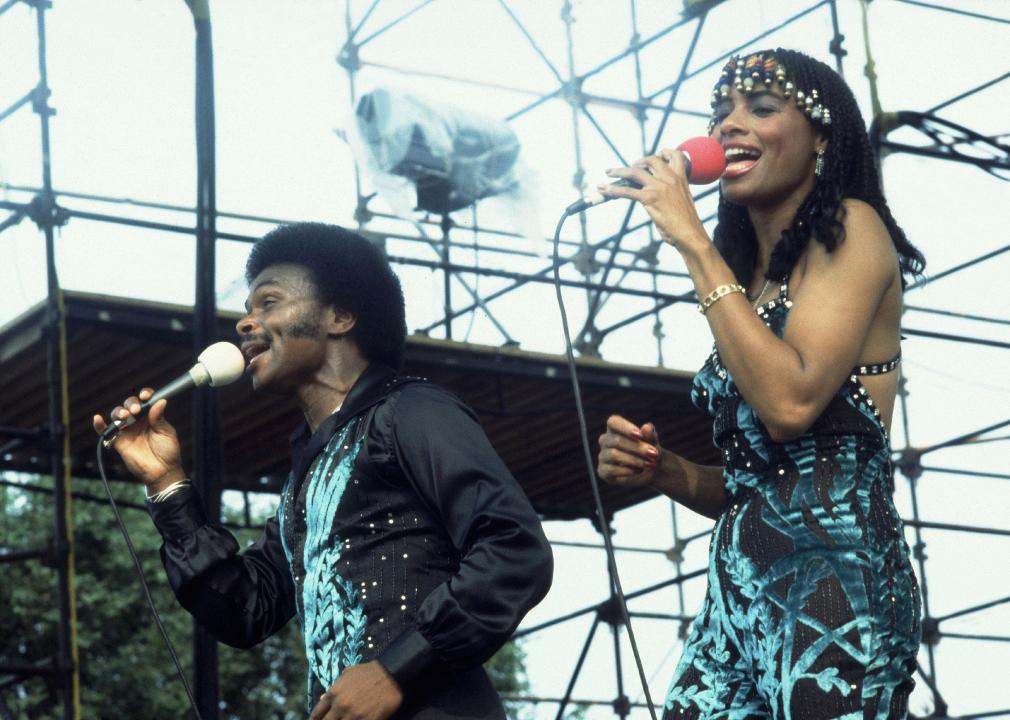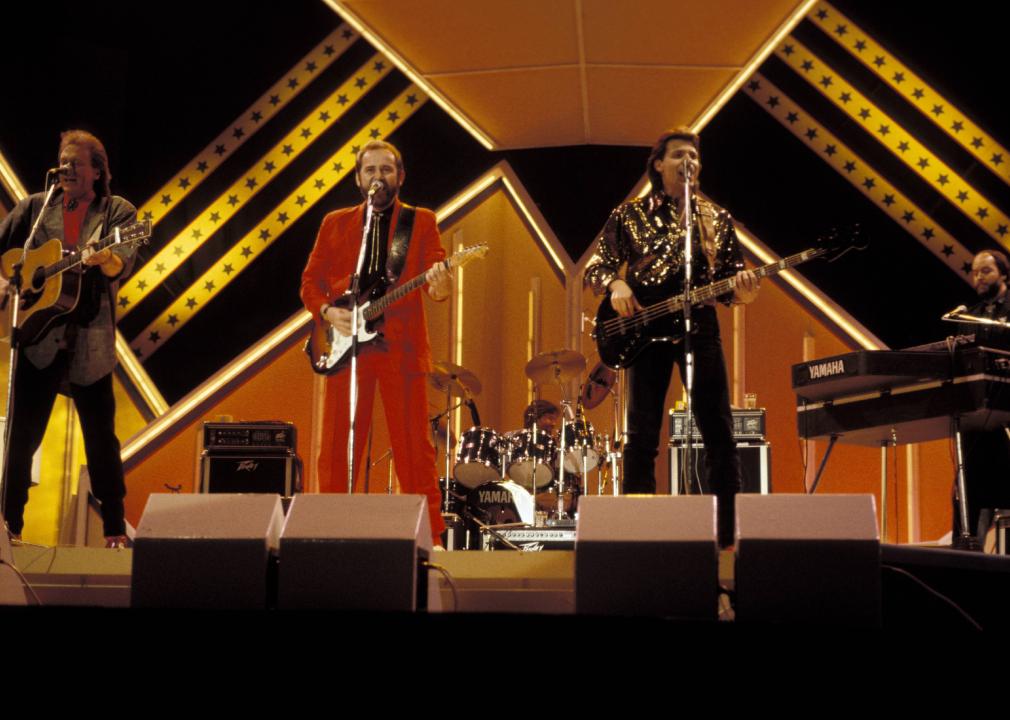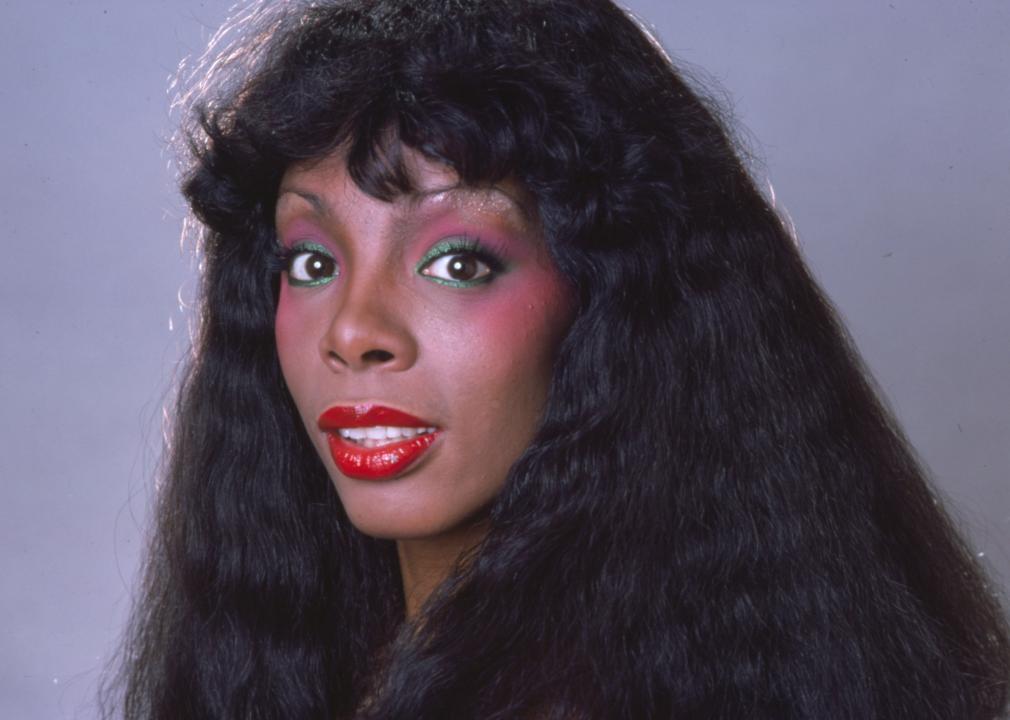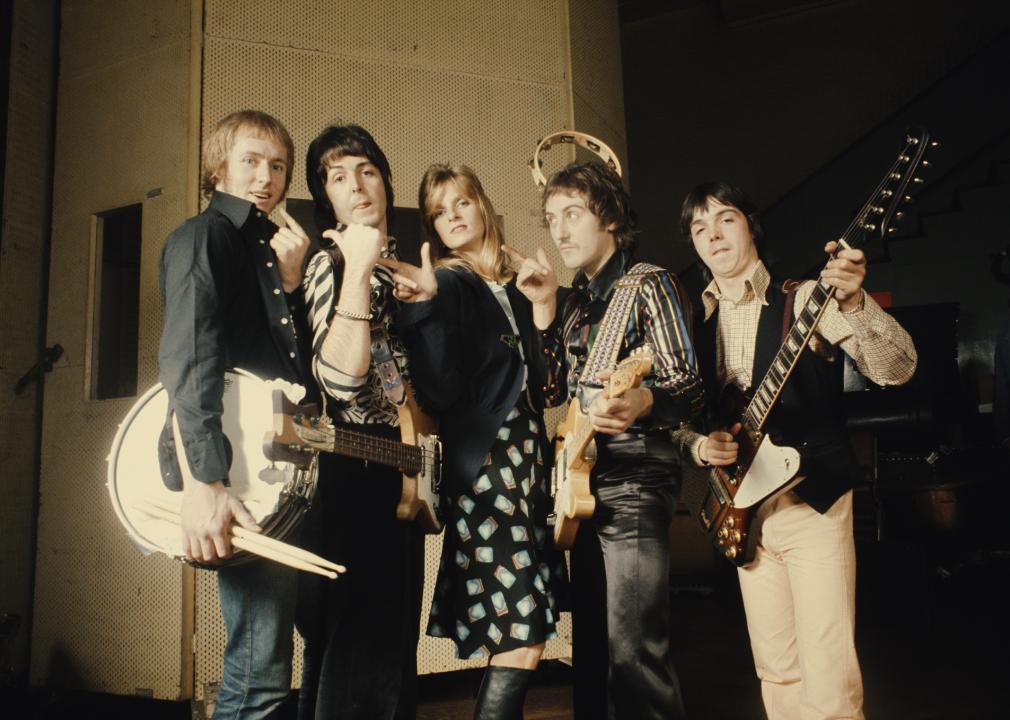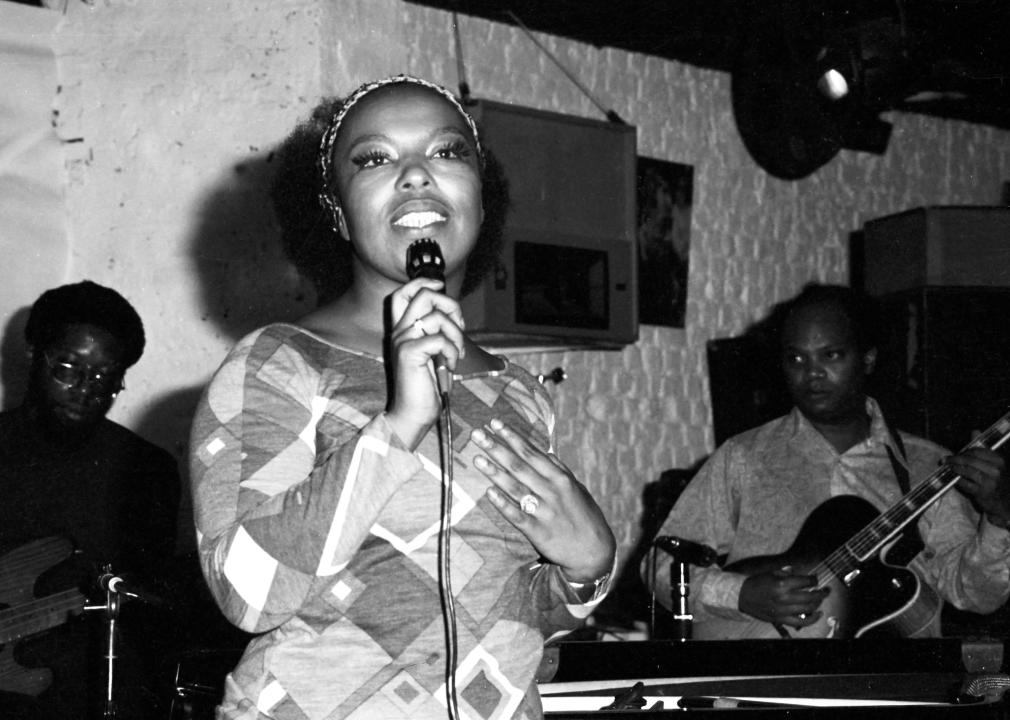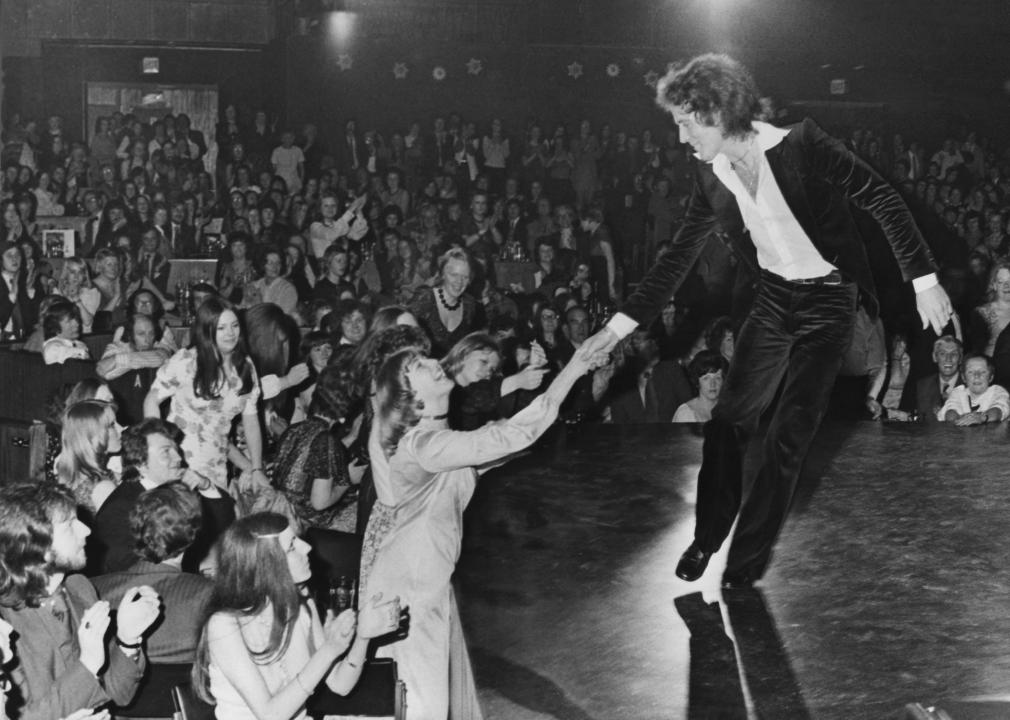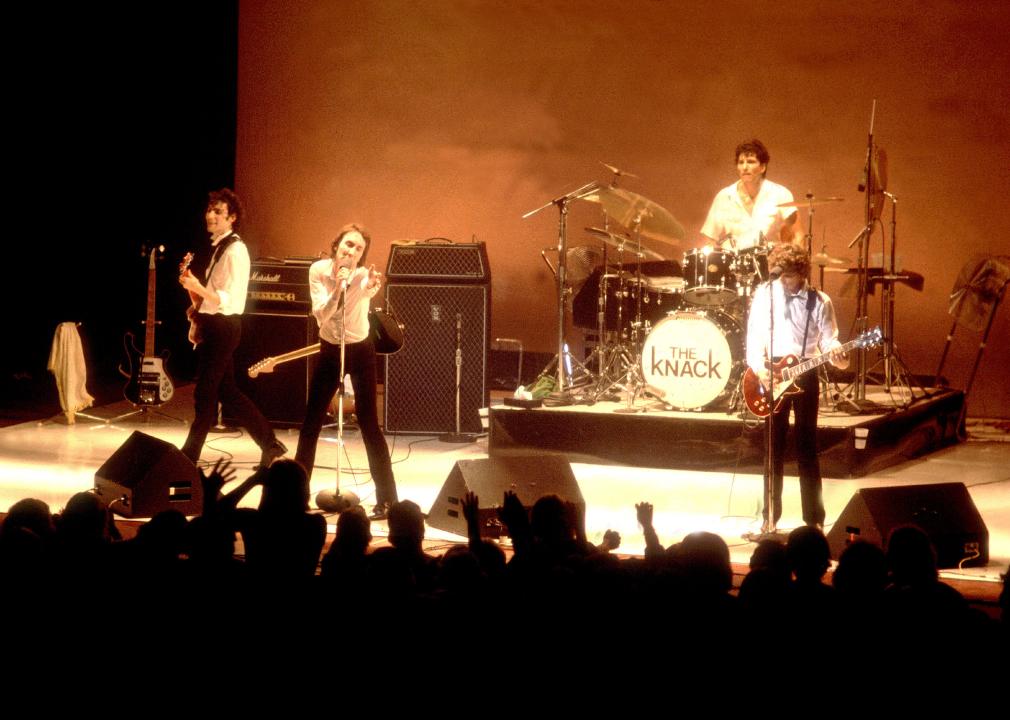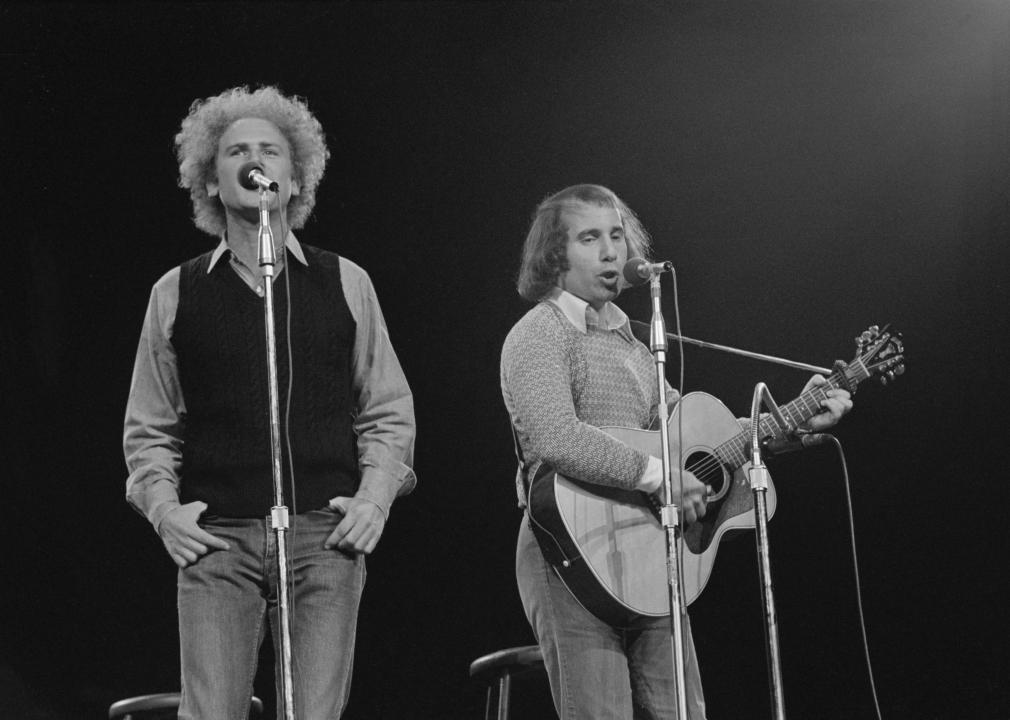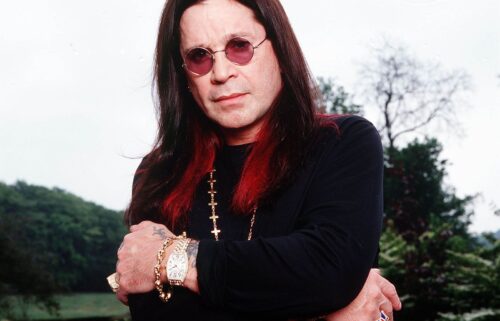#1 rock songs of the 1970s
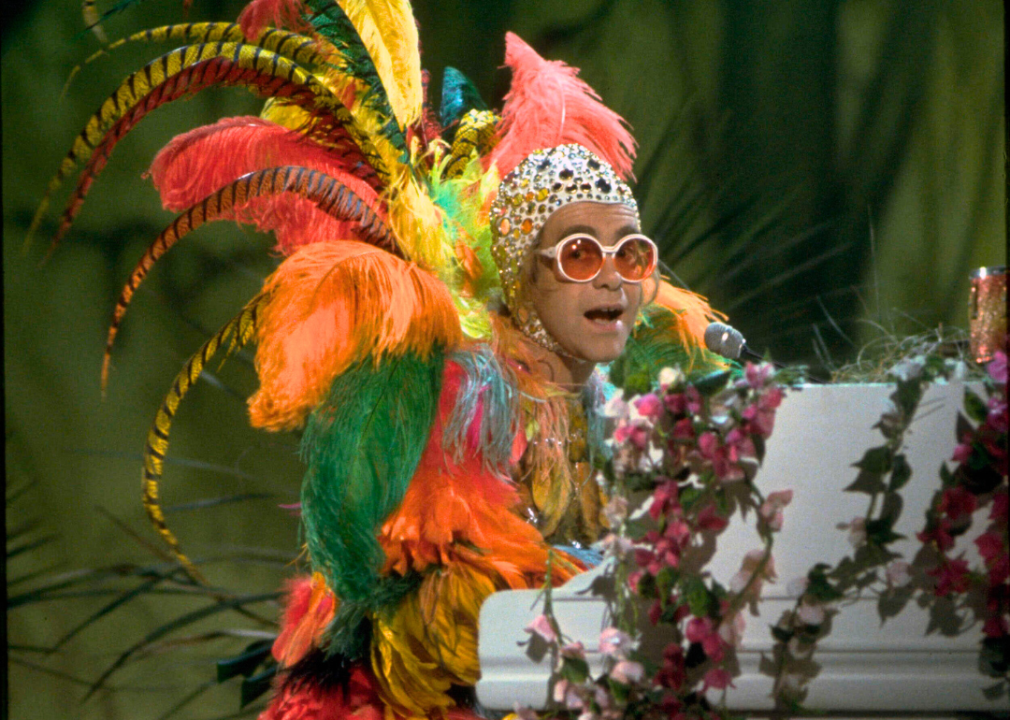
TV Times/Future Publishing via Getty Images
#1 rock songs of the 1970s
Elton John performing his song ‘Crocodile Rock’ on the set of The Muppet Show.
Rock music electrified the 1970s, igniting a decade of creativity and innovation in music. The subgenres that stemmed from rock continue to reverb throughout our culture today.
Progressive rock bands like Pink Floyd and Yes challenged the status quo of rock music by experimenting with music production and incorporating classical music to tell intricate stories via concept albums. The genres of hard rock and heavy metal, exemplified by acts like bands Led Zeppelin and Black Sabbath, stormed the scene with flashy guitar riffs and thunderous drum solos that flooded soundstages worldwide. Punk rock rose from the underground in the 1970s, with bands like the Ramones and the Clash playing short, aggressive songs that punched up the musical establishment. These types of rock music—along with glam rock, funk rock, and country rock—added to the depth of the genre, each of them flourishing in the coming decades.
With so much influence from this time period, Stacker looked at the biggest #1 rock songs of the 1970s that were at the #1 spot on the Billboard Hot 100 for three weeks or more and filtered it down to the rock genre according to MusicBrainz, an open music encyclopedia via the University of Waterloo.
![]()
Michael Putland // Getty Images
A Horse With No Name
America at the Royal Festival Hall in London.
– Artist: America
– Date entered at #1: 3/25/1972
– Weeks at #1: 3
Written by singer Dewey Bunnell about his experience growing up in the desert, the 1972 single “A Horse With No Name” was banned by some radio stations who interpreted the song to be about being on drugs. Guitarist Dan Peek left the band America in 1977, and the group struggled as a duo. America was eventually awarded a star on the Hollywood Walk of Fame in 2012.
David Redfern // Getty Images
Bad Blood
Neil Sedaka holding his hands in the air during a live concert performance.
– Artist: Neil Sedaka
– Date entered at #1: 10/11/1975
– Weeks at #1: 3
Writing the bitter breakup song “Bad Blood,” Sedaka was helped by Elton John on backup vocals, who would later take the #1 slot with “Island Girl” a few weeks later. Starting as a teen pop star, Sedaka transitioned to songwriting later in his career, earning a spot in the Songwriters Hall of Fame in 1983.
David Redfern // Getty Images
The Candy Man
Sammy Davis Jr performs on stage at the Palladium in London.
– Artist: Sammy Davis Jr.
– Date entered at #1: 6/10/1972
– Weeks at #1: 3
Sammy Davis Jr. covered the song “The Candy Man” from the “Willy Wonka & the Chocolate Factory” film soundtrack, despite his hatred of the track for being too upbeat. Davis Jr. continued to have success on the Las Vegas circuit until his death in 1990.
Lester Cohen // Getty Images
Island Girl
Elton John performs on stage during the West of the Rockies tour.
– Artist: Elton John
– Date entered at #1: 11/1/1975
– Weeks at #1: 3
A mix of reggae and rock, “Island Girl” shows the songwriting versatility of Elton John and collaborator Bernie Taupin. Though popular with artists, John has not performed this song live in over three decades, possibly due to its questionable lyrics.
Michael Putland // Getty Images
Baby Come Back
Player performs on stage, New York.
– Artist: Player
– Date entered at #1: 1/14/1978
– Weeks at #1: 3
Written after Player founders Peter Beckett and J.C. Crowley broke up with their partners,
“Baby Come Back” helped the group score a record deal. Although the band lineup has changed, Beckett still tours under the group’s name.
David Redfern // Getty Images
Crocodile Rock
Elton John at the piano.
– Artist: Elton John
– Date entered at #1: 2/3/1973
– Weeks at #1: 3
Noted for its organ intro and fondness of early rock ‘n’ roll culture, “Crocodile Rock” has become a staple of Elton John’s live shows, despite his dislike of it. This song launched John’s dominance of the charts, with seven consecutive #1 albums.
Gems // Getty Images
Knock Three Times
Tony Orlando performing with Dawn.
– Artist: Dawn
– Date entered at #1: 1/23/1971
– Weeks at #1: 3
The lighthearted song “Knock Three Times” with a catchy chorus became popular on radio waves. Dawn experienced moderate success in the 1970s, including a popular variety show, before the group split.
Mark Sullivan // Getty Images
Family Affair
Sly and the Family Stone during the taping of The Midnight Special TV show at NBC Studios.
– Artist: Sly and the Family Stone
– Date entered at #1: 12/4/1971
– Weeks at #1: 3
“Family Affair” was unique in its production, particularly being one of the first songs to use a drum machine. Not only did the song become one of Sly and the Family Stone’s biggest hits, but it solidified them as a pillar in music history, influencing countless artists.
Ian Dickson // Getty Images
War
Edwin Starr performing on stage at Magic Of Motown Revue.
– Artist: Edwin Starr
– Date entered at #1: 8/29/1970
– Weeks at #1: 3
Singer Edwin Starr was not shy to express his feelings about the Vietnam War with the powerful protest song “War.” Originally a song by the Temptations, the band’s version was withheld by the label so as not to alienate conservative listeners, and Starr’s version became one of the most recognizable protest songs. Starr transitioned to soul and disco later in his career, passing away in England in 2003.
Paul Natkin // Getty Images
Sir Duke
Stevie Wonder performs onstage at the Auditorium Theater.
– Artist: Stevie Wonder
– Date entered at #1: 5/21/1977
– Weeks at #1: 3
Stevie Wonder wrote “Sir Duke” as an ode to Duke Ellington, a tribute honoring the Jazz great after his death in 1974. The lyrics are a love letter to jazz, with Wonder singing about the power of music to bring people together. This is one of many Stevie Wonder songs to land at the top of the charts.
Michael Ochs Archives // Getty Images
Play That Funky Music
Wild Cherry in concert.
– Artist: Wild Cherry
– Date entered at #1: 9/18/1976
– Weeks at #1: 3
A mix of funk and rock, “Play That Funky Music” was Wild Cherry’s only hit, with the group going through various lineups before their dissolution in 1979. Vanilla Ice did a cover that landed at #4 on the Hot 100 in the early ’90s.
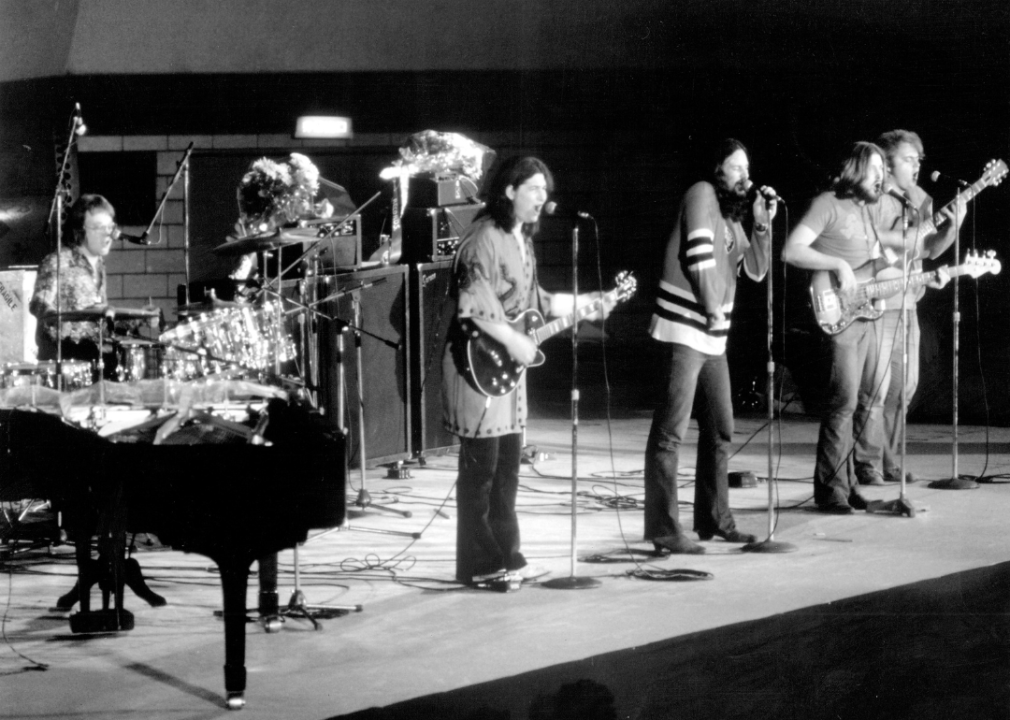
Michael Ochs Archives // Getty Images
American Woman
Guess Who performing onstage in 1972.
– Artist: The Guess Who
– Date entered at #1: 5/9/1970
– Weeks at #1: 3
A blues rock song, the perceived political messages from the lyrics of “American Woman” polarized listeners so much that First Lady Pat Nixon apparently asked the Guess Who not to perform the song when visiting the White House. Guitarist and songwriter Randy Bachman left the band right after the song became a hit, leading to the demise of the group a few years later. The song was later covered by Lenny Kravitz, winning a Grammy in 2000.
Michael Ochs Archives // Getty Images
Me And Mrs. Jones
Billy Paul singing.
– Artist: Billy Paul
– Date entered at #1: 12/16/1972
– Weeks at #1: 3
Written about a man’s affair with a woman named Mrs. Jones, this R&B song is considered one of the most iconic slow jams of all time. A leader of the Philadelphia soul movement, Billy Paul’s success was short, as he became more controversial with white audiences due to his Civil Rights activism. Paul produced albums until 1988 and passed away in 2016.
Michael Ochs Archives // Getty Images
I Think I Love You
Partridge Family singing.
– Artist: The Partridge Family
– Date entered at #1: 11/21/1970
– Weeks at #1: 3
“I Think I Love You” was made for “The Partridge Family” television show about the musical family of the same name. The lyrics about new love sung by the band’s lead David Cassidy made him a teen heartthrob. Cassidy stopped touring and quit the show in 1974, and had moderate success as an actor until his death in 2017.
Fin Costello // Getty Images
Love Will Keep Us Together
Captain & Tennille performing on stage.
– Artist: Captain & Tennille
– Date entered at #1: 6/21/1975
– Weeks at #1: 4
Originally written by Neil Sedaka and Howard Greenfield and recorded by the former, the upbeat lyrics and funky piano of “Love Will Keep Us Together” bucked the trend of other love songs of that era. Though Captain & Tennille, who covered the song to great success, had few follow-up accomplishments after the 70s, the husband-and-wife duo continued to tour until their divorce in 2013. “Captain” Daryl Dragon passed away in 2019.
Evening Standard // Getty Images
My Love
Paul McCartney and his wife Linda perform with their pop group Wings.
– Artist: Paul McCartney & Wings
– Date entered at #1: 6/2/1973
– Weeks at #1: 4
Ex-members of the Beatles were still going strong in the 1970s, with “My Love” being Paul McCartney and Wings’ first hit of that decade. The supergroup toured and recorded popular songs throughout the decade before its dissolution in the early 1980s.
Paul Natkin // Getty Images
Reunited
Peaches and Herb perform at Chicagofest.
– Artist: Peaches & Herb
– Date entered at #1: 5/5/1979
– Weeks at #1: 4
The soft rock song “Reunited” proved to be a genre mashup hit, mixing elements of pop, soul, and disco. While Herb Fame has remained in the Peaches & Herb duo, the role of “Peaches” has switched out for each era, broken up by Herb’s stints working in law enforcement.
David Redfern // Getty Images
Kiss You All Over
Exile on stage.
– Artist: Exile
– Date entered at #1: 9/30/1978
– Weeks at #1: 4
Another one-hit wonder, Exile incorporated disco beats and synthesizers in the late 1970s hit “Kiss You All Over.” Failing to get another hit on the pop charts, the group pivoted to country music, with a string of #1 hits on the Hot Country Songs charts in the 1980s.
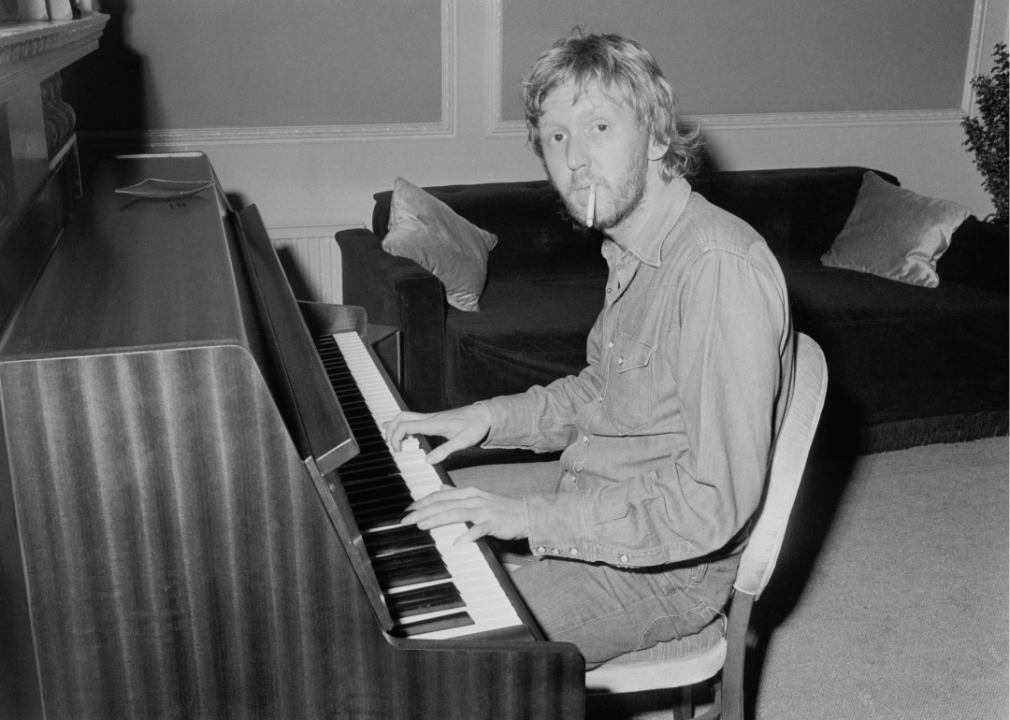
Hulton Archive // Getty Images
Without You
Harry Nilsson at the piano, 1972.
– Artist: Nilsson
– Date entered at #1: 2/19/1972
– Weeks at #1: 4
“Without You” is considered one of the most iconic power ballads of all time. Originally recorded by Badfinger, it’s been performed countless times, including by Mariah Carey and Heart. Despite a close relationship with the Beatles, Harry Nilsson struggled with success in the ’80s. Prior to his death in 1994, he was able to record a final album, which was posthumously released in 2019.
Jack Mitchell // Getty Images
Bad Girls
Donna Summer, November 1978.
– Artist: Donna Summer
– Date entered at #1: 7/14/1979
– Weeks at #1: 5
“Queen of Disco” Donna Summer made some time for rock fans, producing a disco song with a mix of rock and funk elements titled “Bad Girls,” which became an anthem on dance floors. Summer had over 32 Hot 100 hits and continued to produce dance hits until her passing in 2012.
Michael Putland // Getty Images
Silly Love Songs
Wings pictured together at Abbey Road Studios.
– Artist: Wings
– Date entered at #1: 5/22/1976
– Weeks at #1: 5
“Silly Love Songs” is a rebuttal to criticism against songwriter Paul McCartney pushing out love songs, with the former Beatle poking fun at his critics. The song became McCartney’s longest post-Beatles #1 hit, and he currently holds the record for most #1 hits when including his work with the Beatles.
Jazz Services // Getty Images
The First Time Ever I Saw Your Face
Roberta Flack performing in Soho in London.
– Artist: Roberta Flack
– Date entered at #1: 4/15/1972
– Weeks at #1: 6
Originally written by Ewan MacColl for his partner Peggy Seeger, singer Roberta Flack made “The First Time Ever I Saw Your Face” an international hit and an iconic love song. Flack continued to have success throughout the 1970s and early 1980s, but an ALS diagnosis in 2022 halted her career.
Daily Express // Getty Images
Alone Again (Naturally)
Gilbert O’Sullivan on stage.
– Artist: Gilbert O’Sullivan
– Date entered at #1: 7/29/1972
– Weeks at #1: 6
Irish singer Gilbert O’Sullivan took his feelings of sadness and isolation to paper, creating one of the most memorable ballads of the ’70s. O’Sullivan would continue to have a string of hits through the ’70s, although younger audiences might know him as a center of a sampling lawsuit with rapper Biz Markie in 1991.
Paul Natkin // Getty Images
My Sharona
The band The Knack performing onstage.
– Artist: The Knack
– Date entered at #1: 8/25/1979
– Weeks at #1: 6
Written about frontman Doug Fieger’s infatuation for Sharona Alperin, the catchy drum beat and baseline made “My Sharona” a staple of 1970s rock. Though the group gave their last performance in 1981 (save for a few reunions in subsequent years), the song is a popular target for parody; most notably, it provided inspiration for “My Bologna,” Weird Al Yankovic’s first hit.
Bettmann // Getty Images
Bridge Over Troubled Water
Simon and Garfunkel perform at a Madison Square Garden concert.
– Artist: Simon & Garfunkel
– Date entered at #1: 2/28/1970
– Weeks at #1: 6
Singer-songwriter Paul Simon considers “Bridge Over Troubled Water” his most mature work, with the song winning the Grammy Award for Record of the Year. This would be the duo’s last #1 on the charts, as the duo split later that year. Simon and Art Garfunkel have reunited on occasion, most recently in 2010.
Data reporting by Rahul Mukherjee. Story editing by Chris Compendio. Copy editing by Tim Bruns. Photo selection by Clarese Moller.
